When I last visited the National Museum of African American History and Culture, I started…
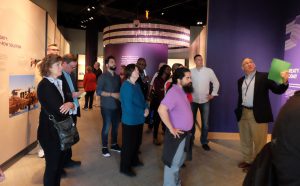 Our last museum seminar took place on April 19, and as usual, our series ended in stellar fashion as Dr. David Penney, Associate Director of Museum Scholarship, Dr. David Hirsch, Researcher, and Colleen Call Smith, Education Specialist, guided the group through the afternoon and a look at the Native American Struggle for Treaty Rights and Tribal Sovereignty.
Our last museum seminar took place on April 19, and as usual, our series ended in stellar fashion as Dr. David Penney, Associate Director of Museum Scholarship, Dr. David Hirsch, Researcher, and Colleen Call Smith, Education Specialist, guided the group through the afternoon and a look at the Native American Struggle for Treaty Rights and Tribal Sovereignty.
Dr. Penney began the afternoon by providing an overview of the museum, its mission and some of the misconceptions it is working to correct. Dr. Hirsch then took the group on a guided tour of the exhibit, “Nation to Nation”. The exhibit serves as a reminder that treaties are agreements made between nations, and of higher authority than state law. In spite of this, the history of treaties made between the United States and various American Indian tribes is a history of promises broken. For example, in many cases, U.S. government officials hid treaties to avoid following through with the agreements they had made. Other treaties contained language that sought to force the assimilation and acculturation of tribes. It has been a long battle, but beginning in the latter part of the 20th century, Native groups began to win key court battles to have their rights restored, and the provisions of treaties enforced as written. The fight for tribal rights continues today, and is the focus of the last part of the exhibit.
The tour was followed by a lively question and answer session led by Drs. Hirsch and Penney, followed by a presentation by Colleen Call Smith, who introduced the group to NK360, a national initiative focused on providing lessons for inclusion in K-12 curriculum to educate American students in native histories, cultures, and contemporary lives. She emphasized that along with introducing students to issues related to native groups, NK360 also hopes to encourage students to develop their own organized, evidence-based arguments as a way of promoting active and responsible citizenship. This was illustrated as she walked the group through one of the lessons, allowing all to see the ways in which this could be easily adapted to a college level audience. In fact, she encouraged this.
As has been the case with each of our museum sessions this spring, the afternoon was rich with information, and all were reluctant to leave at the end of the afternoon.


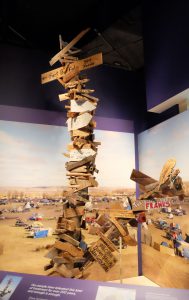
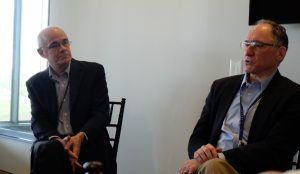
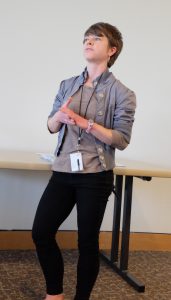


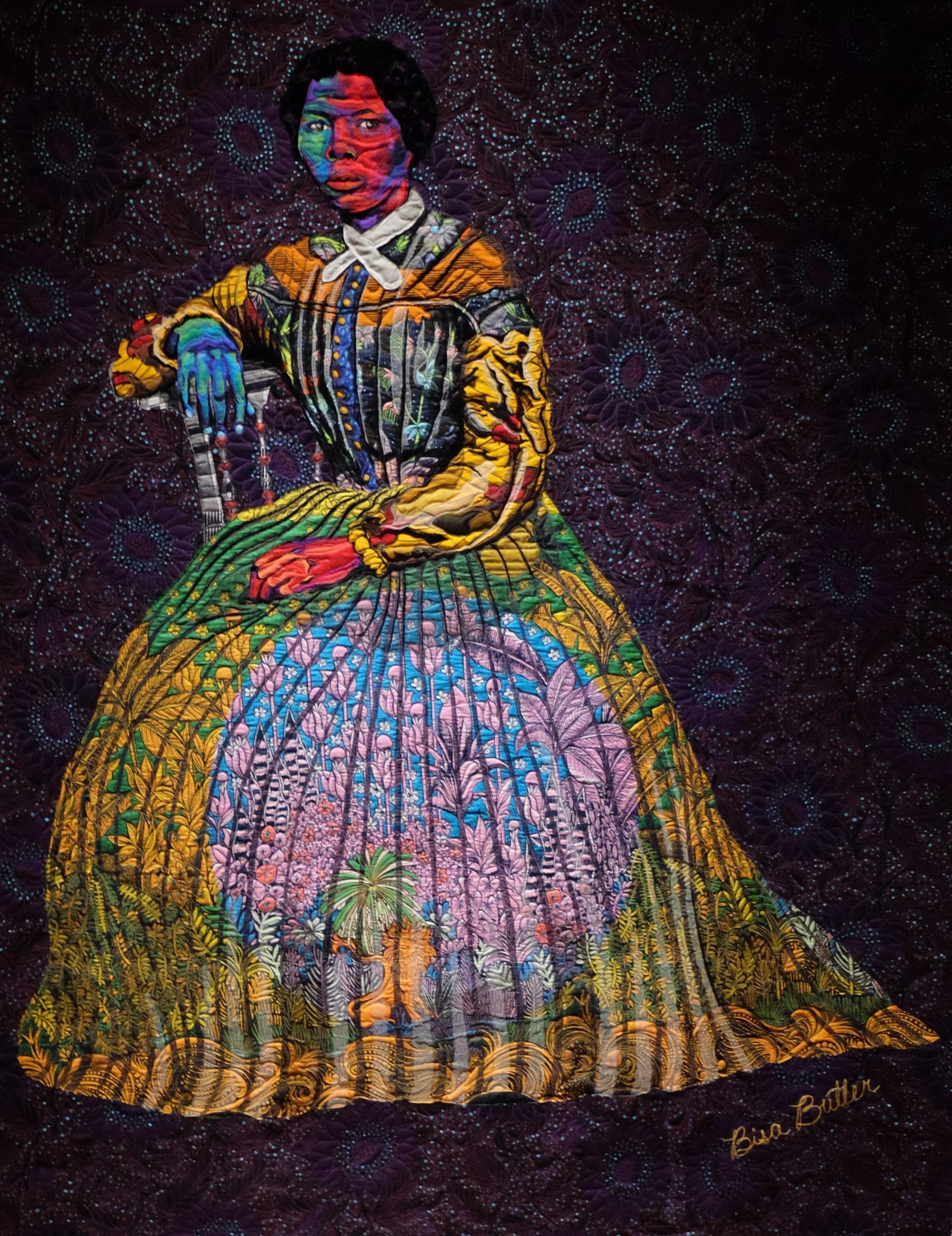
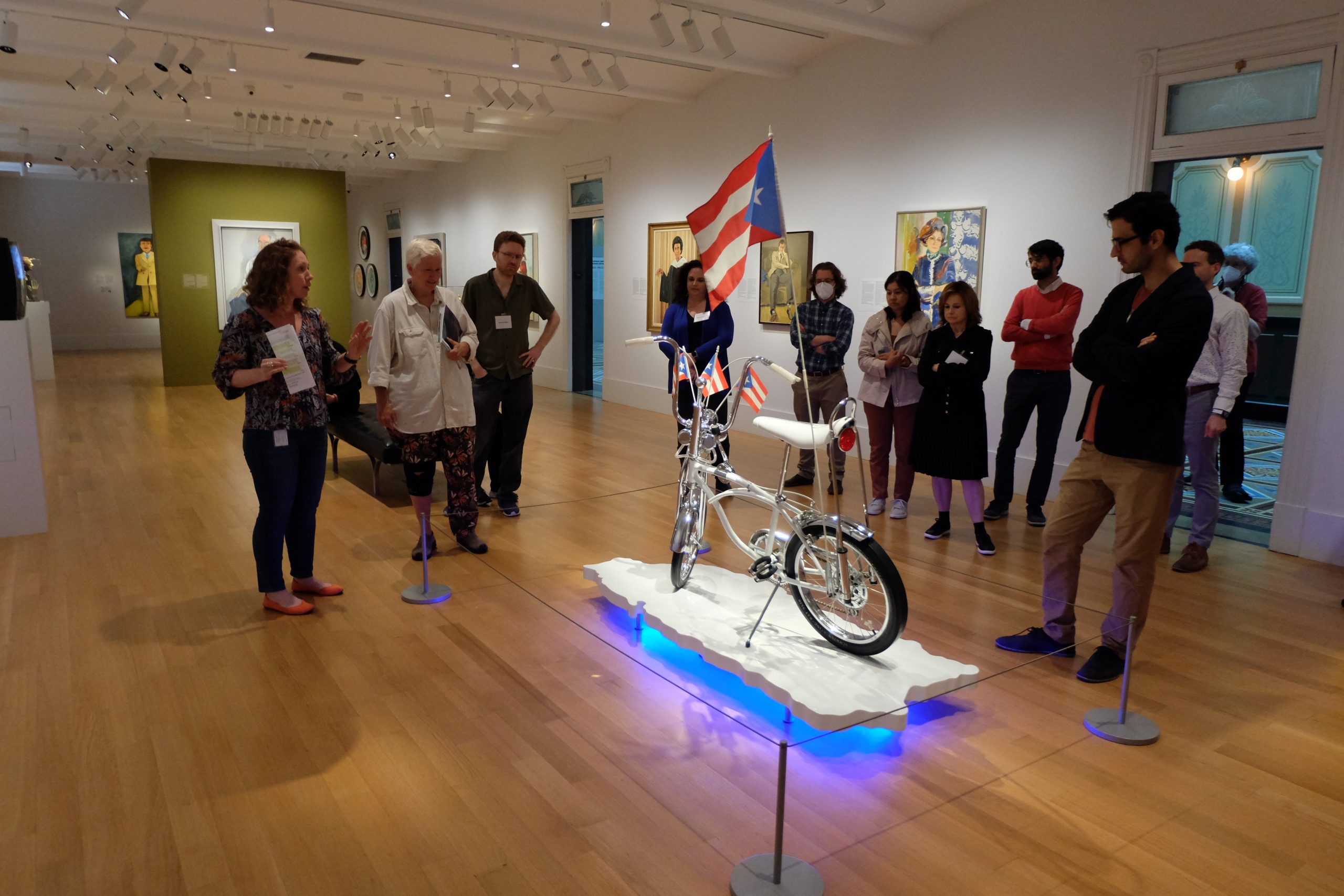

This Post Has 0 Comments